2023-2024
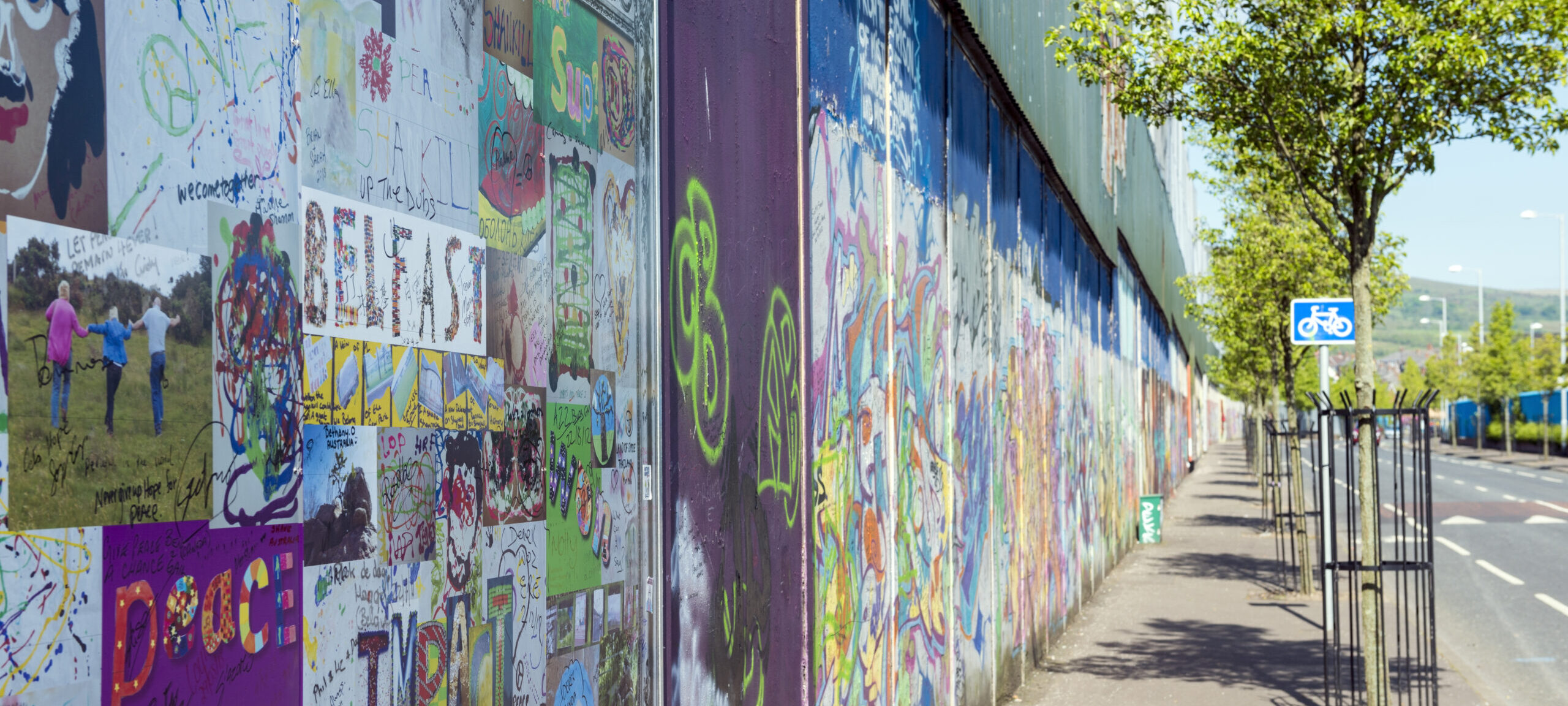
Leading with Peace: Lessons from Northern Ireland
This program will engage students in history, social work, economics and other disciplines to better understand local, regional and national reconciliation processes, using the historical conflict of “the Troubles” in North Ireland as an example. Partnering with nonprofit Corrymeela, whose mission is to build trust and understanding among individuals, communities, power structures and statutory bodies in Northern Ireland and beyond, faculty will guide students to understand the pervasiveness, impact and barriers created by conflict and violence and the usefulness of peacemaking and restorative justice practices as future leaders.
Faculty team members:
- Noël Busch-Armendariz, Ph.D., LMSW, MPA, University Presidential Professor, School of Social Work and Director of the Institute on Domestic Violence and Sexual Assault
- Bruce Kellison, Ph.D., Director of the Bureau of Business Research at the IC2 Institute, and co-director of the Institute on Domestic Violence and Sexual Assault
- Monica Martinez, Ph.D., Associate Professor, Department of History, College of Liberal Arts
Student team members:
- David Perez- International Relations & Global Studies/Asian Cultures & Language (Japan), Nati Roman- Mexican American & Latino Studies, Meredith L. Sanchez- History and Mexican American and Latino/a Studies, Vanessa Mathis- Anthropology
- Trishta Nguyen- Economics, International Relations & Global Studies (IRG), Kate Whyte- Government, Kena Desai- Public Health, International Business, Anika Bhatia- Psychology, Human Development & Family Sciences (HDFS), Neuroscience
- Maria Rodriguez- Design, Allie Alfaro-Kim -Radio, Television, and Film, Geraldyn Campos- International Relations and Global Studies, Government
- Elizabeth Tomoloju- Government, Sophia Westwood- Journalism, Abbey Lantis- Social Work, Sociology, Nikolas Parker- Education (Youth and Community Studies, Government
International partner:
- Corrymeela, Ballycastle, Northern Ireland, United Kingdom
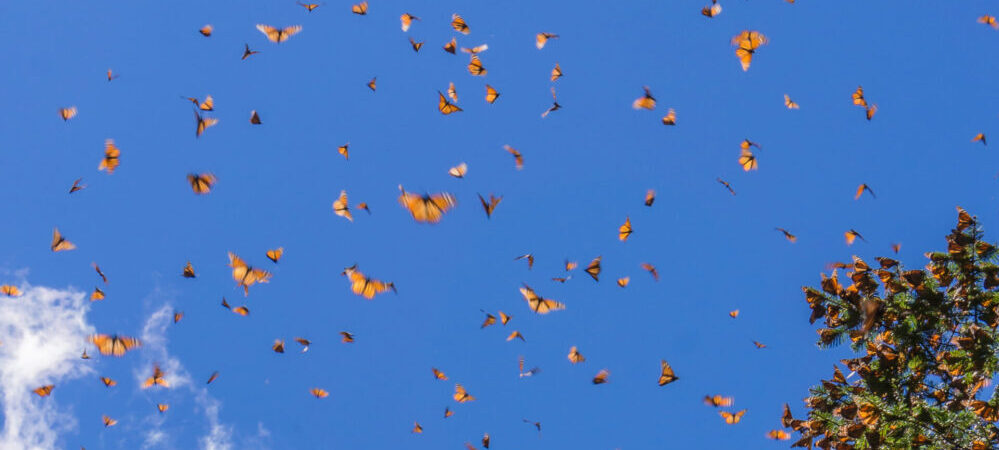
Lives in Motion: Human and Animal Migration in Times of Environmental Change
Disruption of animal migratory patterns, decline of itinerant farm workers and a growing number of displaced peoples worldwide pose a major challenge for the well-being of human societies and natural ecosystems. This program will explore migration from this wider perspective, focusing on Quindío, a region in the Colombian Coffee Axis, and the Monarch Butterfly Biosphere Reserve in Mexico. Benefiting from faculty and partners’ work in Latin American studies, language pedagogy, visual arts and environmental studies, students will transform this learning experience abroad and effect greater global awareness through storytelling.
Faculty team members:
- Adela Pineda, Ph.D., Professor, Department of Spanish and Portuguese, College of Liberal Arts, and Director of The Teresa Lozano Long Institute of Latin American Studies
- Octavio Kano-Galván, Assistant Professor of Practice, Stan Richards School of Advertising and Public Relations, Moody College of Communications
- Boris Corredor, Ph.D., Associate Professor of Instruction, Department of Spanish and Portuguese, College of Liberal Arts
Student team members:
- Kinda Abou-Hamdan -Plan II Honors & Public Health, Sandi Perez- Plan II Honors & Economics, Khyati Malik- Biomedical Engineering, Sophia Ayala- Psychology, Plan II Honors
- Shannon Henry- Geography, Sustainability Studies, Sociology, Devon Voyles- English, Sruthi Rayaprolu- Canfield Business Honors Program, Finance, Anna Abraham- Public Health, Plan II Honors
- Hannah Rashid- Biomedical Engineering, Eswar Goplakrishnan- Neuroscience, P.Katresai Brahmbhatt- Clinical Nutrition, Public Health, Human Development and Ecology, Aadhunik Sundar- Human Biology, Plan II Honors
- Jan Steihauer- Computer Engineering, Cynthia Fernanda Mendoza Pimentel- Biology, Aaron Doan- International Relations
International partners:
- Ximena Londoño-Pava, founder and director of El Paraíso del Bambú y la Guadua, Montenegro, Colombia
- Isabel Ramírez Ramírez, Centro de Investigaciones en Geografía Ambiental at the Universidad Nacional Autónoma de México, in affiliation with Alternare, Michoacán, Mexico
- Dr. Camila Gómez M, Director of Education, SELVA: Investigación para la Conservación en el Neotrópico

The Sustainable and Resilient Smart City in Japan
This program is embarking on research focused on sustainable and disaster-resilient Smart City development in Japan, specifically the “Toyota Woven City” and Smart City Aizuwakamatsu. With an objective to gain insights into the innovative solutions implemented within these smart cities in Japan, the study will encompass three primary research areas: smart mobility, smart homes and robotics applications. By gaining insight into successful approaches employed in Japan, the team aims to explore and contribute to the future development of smart cities and communities in Austin and beyond.
Faculty team members:
- Junfeng Jiao, Ph.D., Associate Professor, School of Architecture
- Ming Zhang, Ph.D., Professor and Program Director of Community and Regional Planning, School of Architecture
- Junko Hatanaka, MA, MS, Assistant Professor of Instruction, Department of Asian Studies, College of Liberal Arts
Student team members:
- Lathan Seiju Douglas-Mechanical Engineering, Kana Sophia Iwahara-Biochemistry, Tomoya Ethan Tanaka-Civil Engineering, Julius Kazuma Bergstrom-Undeclared Business
- Kathy Vu Dang-Biology, Yashna Singhania-Enivronmental Engineering, Sophia (Sophie) Snapp-Enironmental Engineering, Emma Grace Maierson- Radio, Television, Film, Emma Pardue-Advertising
- Cristopher Ferreon-Biology (Ecology, Evolution & Behavior), Chemistry, Mason Yang- Microbiology/Infectious Disease and Philosophy, Ramiro Zamora-Garcia -History, Shawn Hatcher-Chemical Engineering, Sarah Snapp-Japanese
International partner:
- Tokyo Metropolitan University, Tokyo, Japan
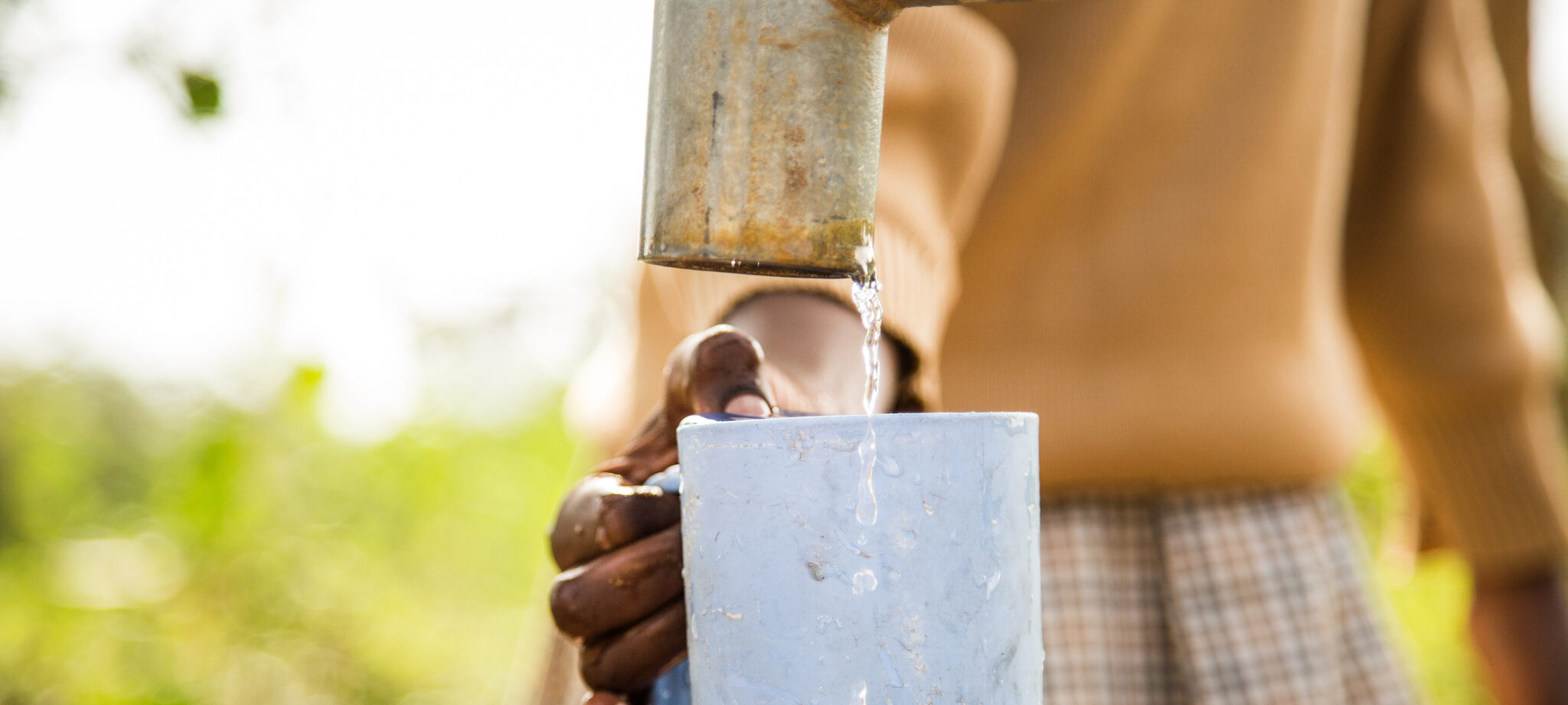
Water Scarcity in Kenya: Decentralized Desalination Using Renewable Energy
This program will tackle the global challenge of water scarcity by harnessing solar power to desalinate water in rural and peri-urban communities in Kenya. Students will partner with Austin-based nonprofit Give Power and South Eastern Kenya University to implement decentralized desalination systems, while also examining the socioeconomic impacts of solar water farms.
Faculty team members:
- Manish Kumar, Ph.D., Associate Professor, Civil, Architectural and Environmental Engineering, Cockrell School of Engineering
- Lucy Atkinson, Ph.D., Associate Professor, Stan Richards School of Advertising, Moody College of Communication
- Patrick Bixler, Ph.D., Assistant Professor, LBJ School of Public Affairs
Faculty team members:
- Kelsey Nyandusi- Marketing, Micheal Ayele- Management Information Systems
- Aarya Nair- Corporate Communications and Unspecified Business, Suhani Gajera- Neuroscience, Shriya Mukkavilli- Public Health
- Bella Tran- Public Health, Davina Tran- Biomedical Engineering, Jayline Garza- Nutritional Sciences & Health and Society
- Jennifer Pierce- Chemical Engineering, Elena Talarico Ribeiro- Sustainability and Geography, Shrika Paramasivam- Mechanical Engineering and Religious Studies, Rama Hamoudah- International Relations & Global Studies (International Political Economy) and Government
International partner:
- South Eastern Kenya University, Kitui, Kenya
2022-2023
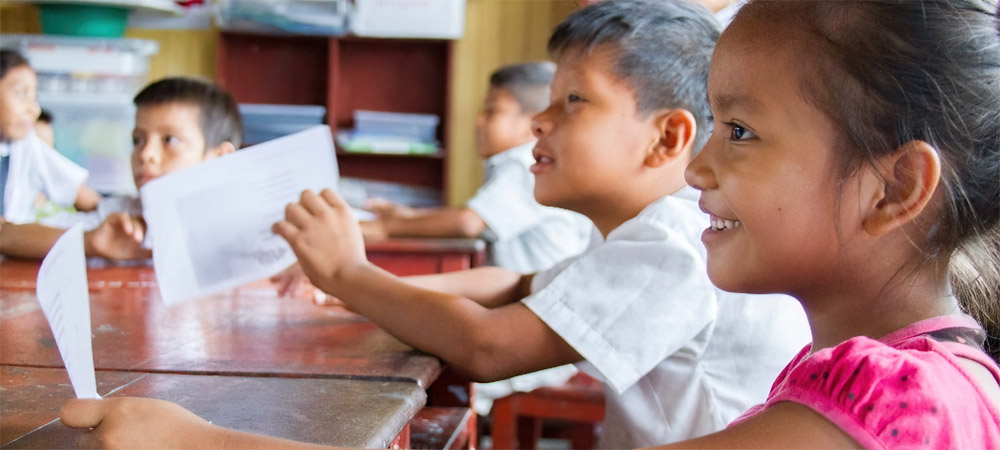
Literacy Development in Peru
This program will work with Cayetano Heredia University in Lima, Peru to provide students with an understanding of literacy initiatives implemented with international support in the Peruvian Amazon. Students will learn about the importance of preserving indigenous languages through collaboration with local partners. Student teams will collect data from leaders, educators, children, and families in the region of Ucayali to design literacy proposals informed by context. Program includes fully-funded travel to Peru summer 2023 and winter term 2023-2024.
Faculty team members:
- Desirée Pallais-Downing, PhD, Assistant Professor of Instruction, Curriculum and Instruction, College of Education
- Patience Epps, PhD, Professor, Linguistics, College of Liberal Arts
International partner:
- Cayetano Heredia University, Lima, Peru
Student team members:
- Antonella Anderson – Plan II, Psychology, Madelyn Hajovsky – Linguistics, Caden Martin – English, History, Jenna Pipkin – Bilingual Education
- Paola Gon – Psychology, Meera Hatangadi – Plan II, Corporate Communication, Frances Parra – International Business, Karla Rojas – Bilingual Education
- Sabrina Chuan – Marketing, Saneeva George – Nutrition, Zaina Ghaffar – Speech-Language Pathology, Nutrition, Hanna Kang – International Relations and Global Studies
- Zofia Graham – Linguistics, Plan II, Gloriel Kazadi – Psychology, Youth and Community Studies, Nioni Ledzma – Religious Studies
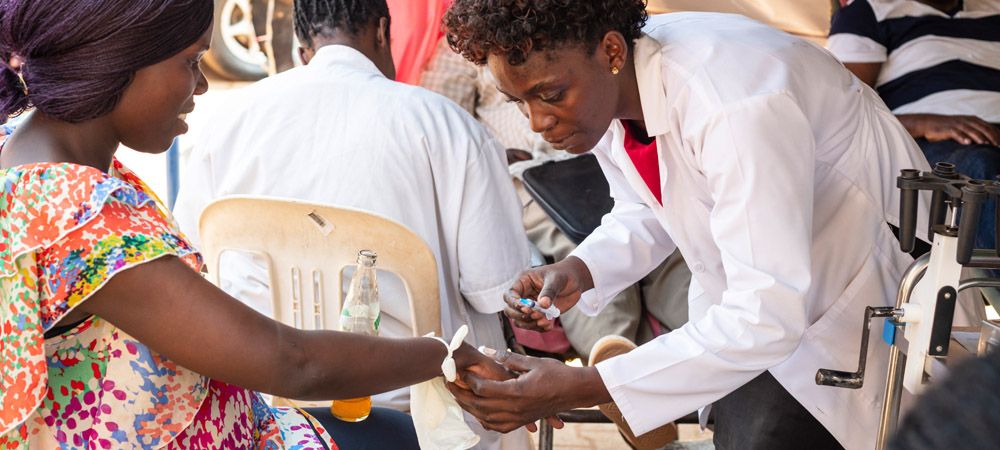
Wound Care in Kenya
This program will build upon the AMPATH collaboration with Moi University in Eldoret, Kenya where nurses have identified wound care as an urgent need. Students will work with the faculty and partner to develop wound prevention tools using locally available supplies. Student teams will identify available materials, design and test prototypes, and test for acceptability for both personal and unit-based interventions to address wound outcomes. The program will include fully-funded travel to Kenya during summer 2023.
Faculty team members:
- Julie Zuniga, PhD, RN, Associate Professor, School of Nursing
- Janet Ellzey, PhD, Professor, Mechanical Engineering, Cockrell School of Engineering
International partner:
- Moi University Hospital, Eldoret, Kenya
Student team members:
- Megha Bhatia – Plan II, Health and Society, Shawn Fan – Nursing, Austin Kayanan – Mechanical Engineering, Carolina Ponce – Mechanical Engineering
- Sweccha Guntamukkala – Neuroscience, Isabel Richards – Mechanical Engineering, Arielle Warren -Nursing
- Daniel Guerra – Architecture, Lauren Guerra-Flores – Plan II, Architecture, Mackenzie Noell – Plan II, Computational Biology, Meron Teferi – Public Health
- Reha Kakkar – Plan II, Neuroscience, Divine Kalu – Public Health, Britney Tran – International Relations and Global Studies, Government
2021-2022

Do-No-Harm, Do-More-Good: Building for Sustainability in the Galápagos
This program will research innovative and implementable solutions for the design of sustainable human habitats that do no harm to—and do more good for—ecologies surrounding the Galápagos Islands of Ecuador. The area’s fragile ecosystem is threatened by a recent surge in land-based tourism, a critical source of revenue for the expanding population. Participants will consider the ways sustainable relations can develop between natural environments, human uses and needs, and buildings and built infrastructure. Students will establish and enact their projects in collaboration with stakeholders that include the University of San Francisco-Quito, global engineering firm Buro Happold, Galápagos islanders, government officials, environmental engineers, economists, and theoreticians, giving the students and university an opportunity to add value to this unfolding and real-world challenge.
Faculty team members:
- David Heymann, M.Arch., Professor, School of Architecture
- Gregory Brooks, M.Arch., Professor, Department of Civil, Architectural, and Environmental Engineering, Cockrell School of Engineering
- Fernanda Leite, Ph.D., Associate Professor, Department of Civil, Architectural, and Environmental Engineering, Cockrell School of Engineering
Student team members:
- Sarah Bryant, Architecture
- Juan David Ledesma, Architecture
- Claudia Katrina Fierro, Architectural Engineering
- Olivia Parker, Electrical Engineering/ Plan II
- Lynna Benhamou, Biological Environmental Science
- Mariana Mercado, Architectural Engineering
- Eduardo Terrazas, Urban Studies/Architecture
- Justin Zhang, Finance/Business Honors
- Bianca Busogi, Biochemistry/Plan II
- Katherine Ospina, International Relations and Global Studies/Sociology
- Carmen Whitten, Architecture
- Sarah Wildenstein, Civil Engineering
International partners:
- University of San Francisco-Quito, Quito, Ecuador
- Buro Happold, Bath, United Kingdom

Addressing an Era of Transatlantic Racial Reckoning: Imagining Anti-Racist Academic Worlds in the United Kingdom and the United States of America
This program will bring together perspectives from faculty, staff, and students in five unique higher education environments—four in the United Kingdom, one in the United States—to identify and validate experiences of BIPOC members of their respective communities. Participants will identify commonalities and differences between the institutional contexts and engage in discussions about the shared and unique aspects of navigating an academic existence for BIPOC community members.
Faculty team members:
- Richard Reddick, Ed.D., Professor, Department of Educational Leadership, College of Education
- Peniel Joseph, Ph.D., Professor, Lyndon B. Johnson School of Public Affairs
Student team members:
- Jayelon Evans, Applied Movement Science
- Hailey Leal, Neuroscience
- Ayotoluwafunmi Osunsade, Public Health/African and African Diaspora Studies
- Pritika Paramasivam, Neuroscience/Health and Society
- Sruthi Ramaswamy, Chemical Engineering/Plan II
- Eddie Bankston, Psychology/Philosophy
- William Cotton Hearne, Plan II/Government
- Joshua Russell, Plan II/Rhetoric and Writing
- Sai Annem, Biology
- Breigh Plat, Sociology/Plan II
- Zia Kinzy, Economics/Plan II
International partners:
- Dr. Mike Mimirinis – University of West London, United Kingdom
- Dr. Peter Claus – Pembroke College, Oxford University, United Kingdom
- Dr. Kehinde Andrews – Birmingham City University, United Kingdom
- Dr. Ali Meghji – Magdalene College, Cambridge University, United Kingdom

Cotton Threads: Fabricating Ethical Production and Consumption in the Garment Industry
This faculty-led program aims to help students learn about the ethical production and consumption of high fashion through coursework, field visits, and independent research in three sites: Texas, Sweden, and India. The program team will partner with the company Nudie Jeans, headquartered in Gothenburg, Sweden, working with their suppliers and academic collaborators in Bangalore, India. Program goals are to teach students how the company strives to: achieve ecological sustainability; instill social justice across production nodes in global commodity chains for growers, textile workers, and garment workers; and offer radical transparency to consumers on ethical production processes and profits. Students will have the opportunity to integrate the skills and knowledge developed over Spring and Summer 2022 to test Nudie Jeans’ business model in Texas, which is the largest grower of cotton in the U.S.
Faculty team members:
- Shiv Ganesh, Ph.D., Professor, Department of Communication Studies, Moody College of Communication
- Sharmila Rudrappa, Ph.D., Professor, Department of Sociology, College of Liberal Arts
Student team members:
- Neha Donthineni, Biology/Plan II
- Yves Alvarez Santoy, Anthropology
- Elyssa Sefiane, Middle Eastern Studies/Religious Studies
- Abigail Walker, Economics/Plan II
- Patrick Davis, Religious Studies
- Ria Goyal, Plan II/Biochemistry
- Janani Gopal, Neuroscience
- Nivedha Loganathan, Plan II/Public Health
International Partners:
- Nudie Jeans – Gothenburg, Sweden
- International Institute of Information Technology Bangalore – Bangalore, India
2020-2021
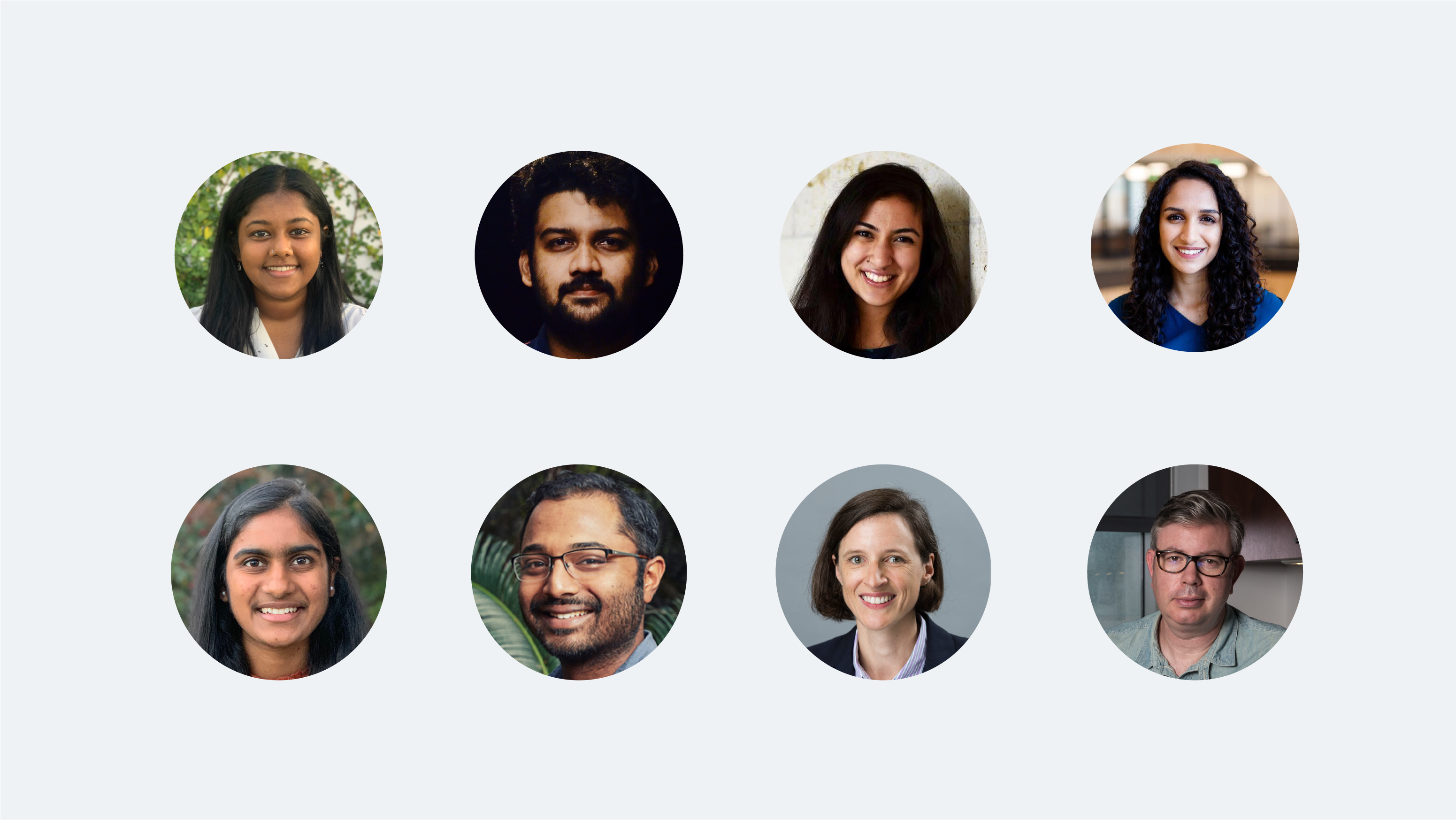
Conversations about Conservation: A Community-Based Research Study to Comprehend Public Engagement in Conservation Initiatives in India
Asia and Oceania
Implement a community-based research model on local mangrove conservation efforts to emphasize the importance of collaborative approaches to climate change
Student team members: Emily Samson, Yukta Sunkara, Gauree Srinivasan, Sanjna Bhatia
Faculty team members: Jason Cons, Erin Lentz, Deepak Chetty
Graduate student team member: Sachin Dheeraj Mudigonda
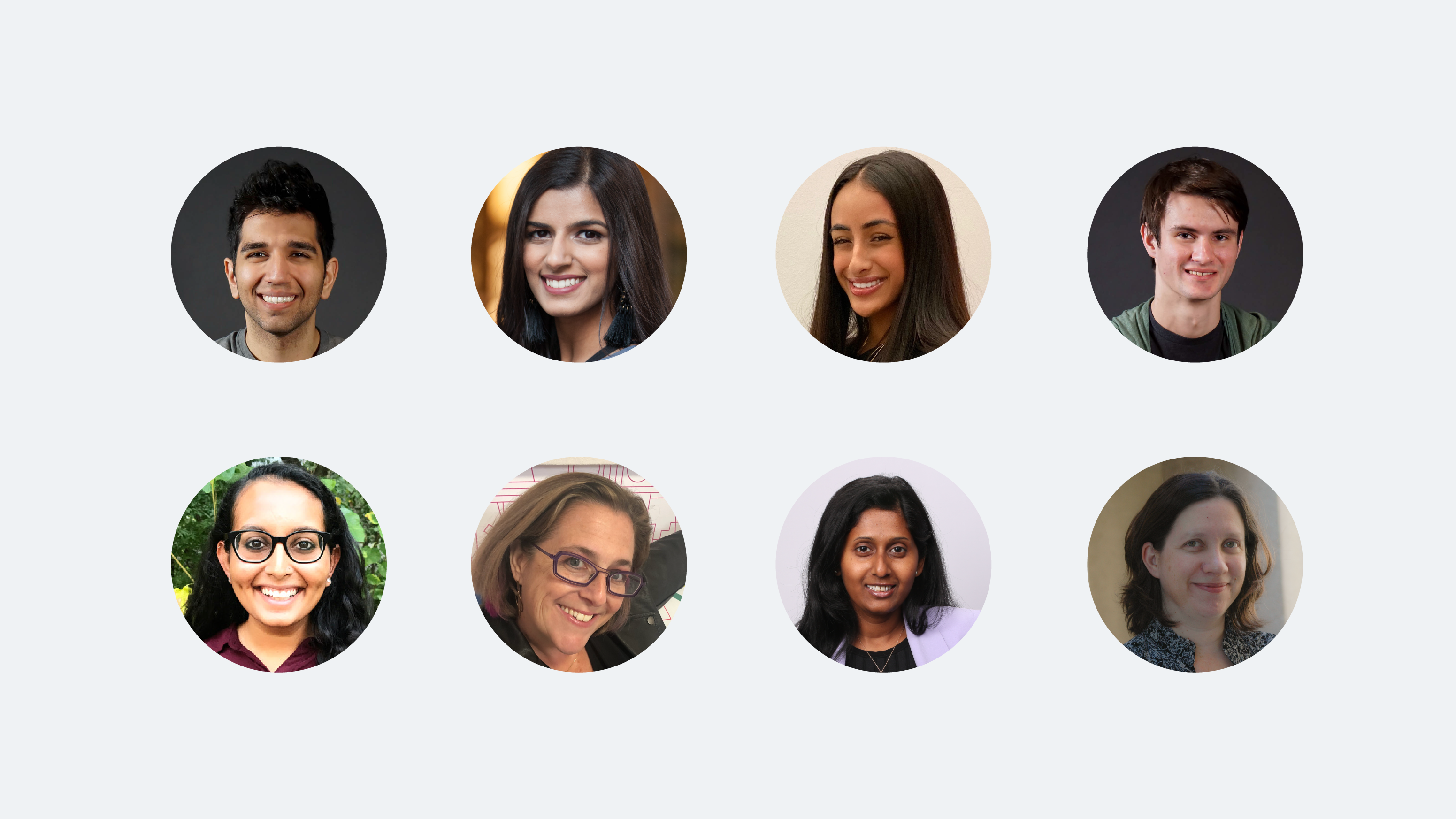
Skin Cancer in Singapore: Using Augmented Reality to Promote Skin Cancer Prevention Efforts
Asia and Oceania
Explore an updated approach to traditional public health initiatives through innovative communication technologies to distribute an interactive and experiential campaign about skin cancer prevention among young adults
Student team members: Neha Momin, Sahar Ali, Daniel Killough, Arman Farsad
Faculty team members: Erin Reilly, Lucy Atkinson, Thushani Herath
Graduate student team member: Sajani Patel
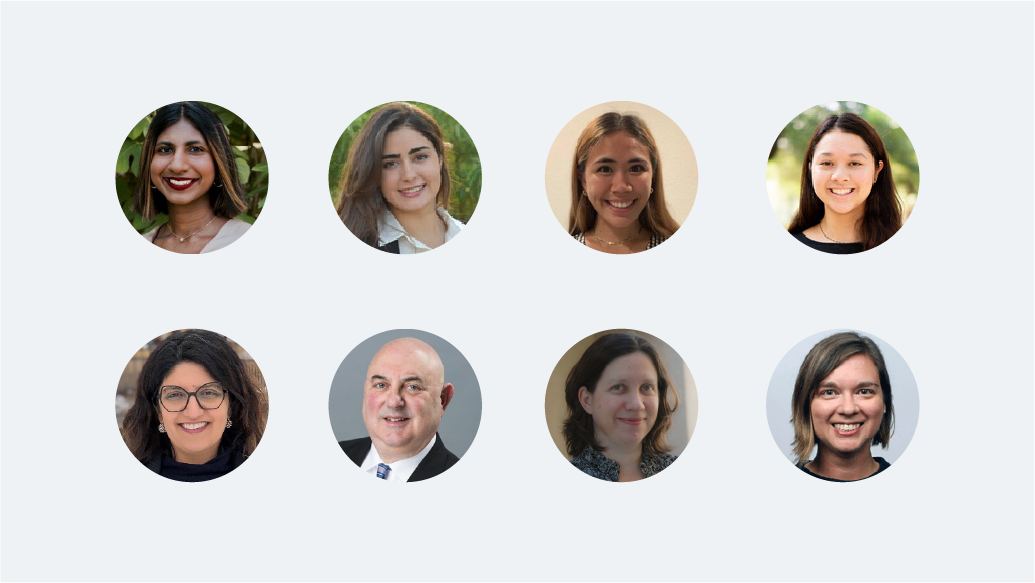
Fostering Green Entrepreneurialism: A Comparison of Water Conservation Practices and Behaviors in Jordan and Texas
Europe, Middle East and Africa
Compare campus water conservation efforts and overall water conservation technology and practice both in Texas and in Jordan. Project website: http://sites.utexas.edu/ujgreenfund.
Student team members: Kisara Dang, Sumaya Daghestani, Abby Partridge, Tanya Raghu
Faculty team members: David Eaton, Lucy Atkinson, Jayme Walenta
Graduate student team member: Noorah Alhasan
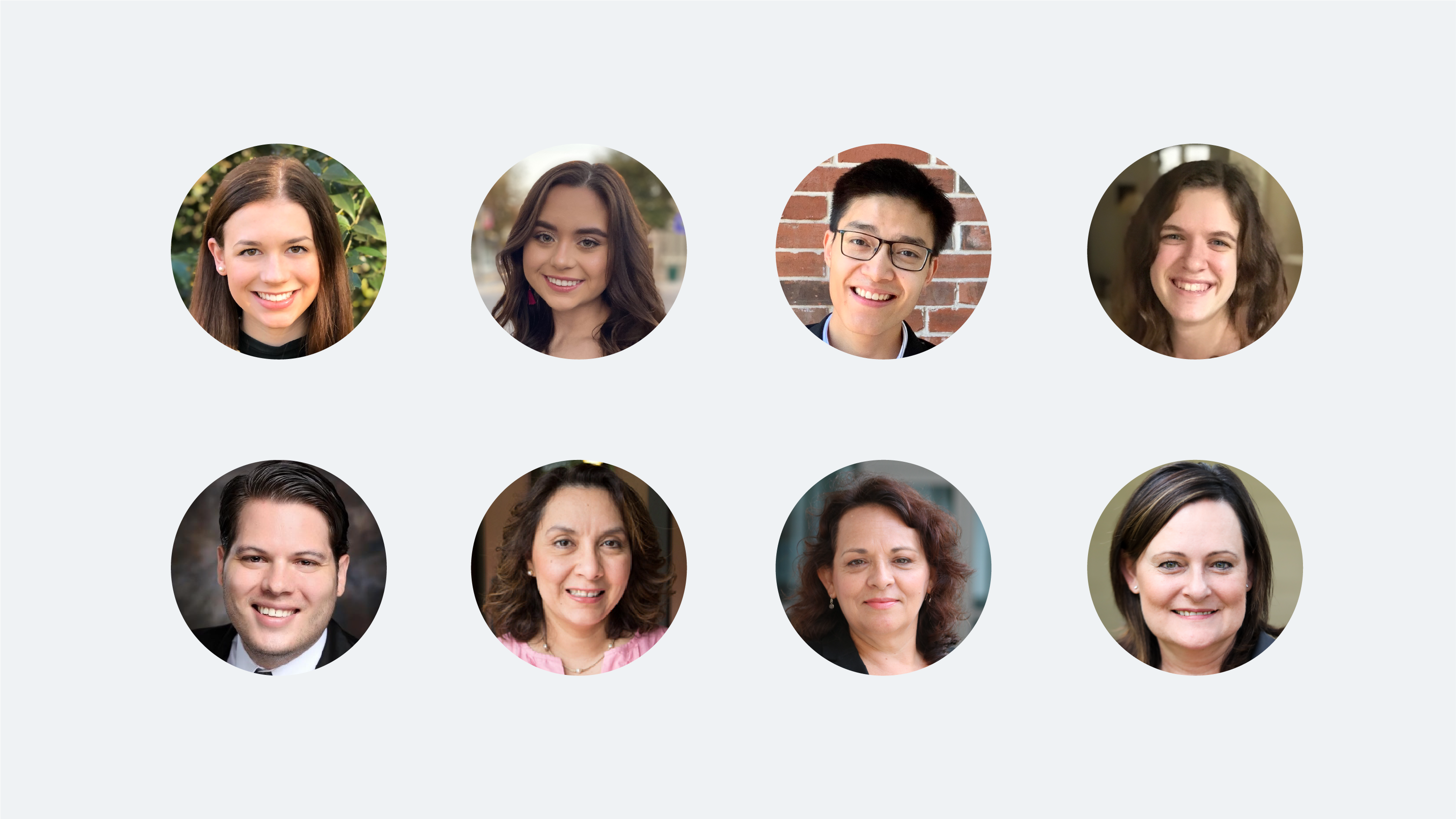
The Case for Connections: Understanding the Effect of Social Networks on the Academic Stress of Undergraduates in Austin, Texas, and Mexico City
Latin America and the Caribbean
Explore the role of social networks on the perceived academic stress levels of Mexican and Texan undergraduates. Project Video
Student team members: Thomas Dang, Melanie Milligan, Grace Ozor, Mariana Rendon Flores
Faculty team members: Deborah Parra-Medina, Carmen Valdez, Keri Stephens
Graduate student team member: Alfonso Rojas Alvarez
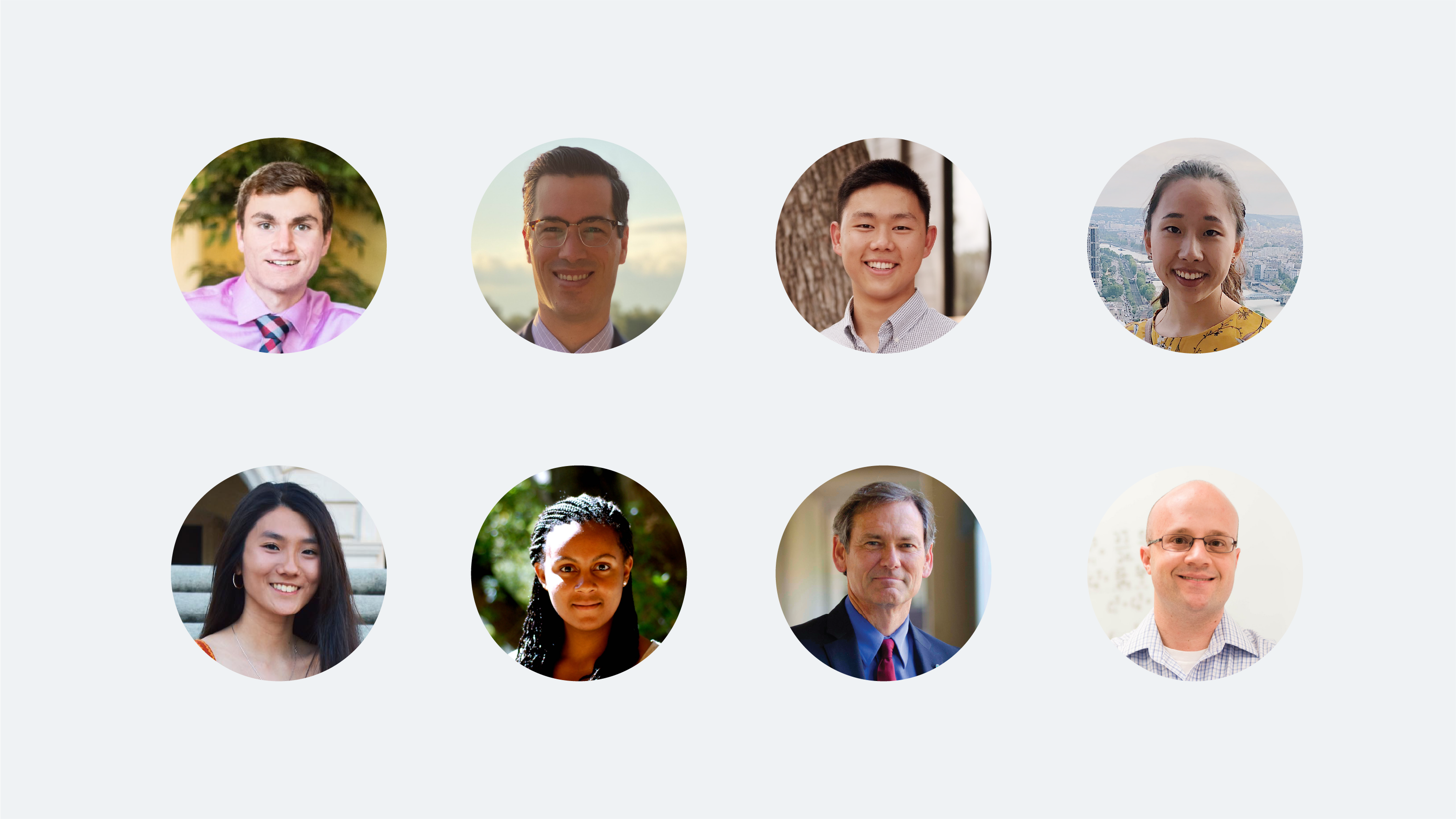
Young Innovators: Bringing Inductive Learning to Early STEM Education in Jamaica
Latin America and the Caribbean
Catalyze the shift toward inductive STEM learning in Jamaican primary students. Project website: https://www.neetyounginnovators.com.
Student team members: Pearlyn Ang, Christopher Calizzi, Anthony Tang, Catherine Tang
Faculty team members: Melissa Kemp, Hal Alper, Brent Iverson
Graduate student team member: Bernard David
2019-2020
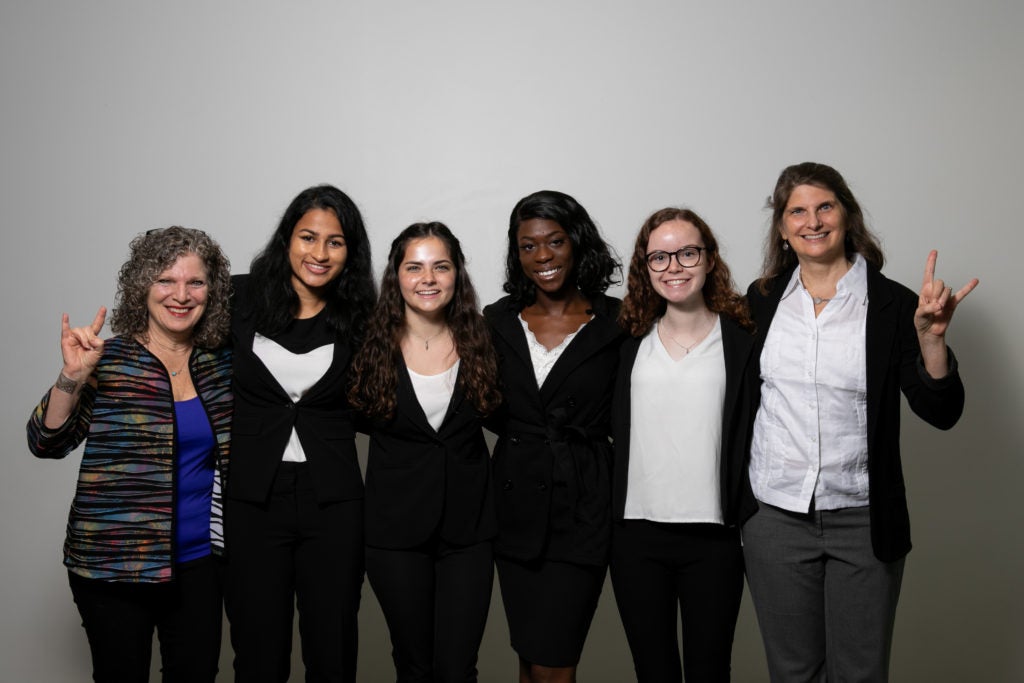
Using Interprofessional Education to Improve Community Health in Kenya
Sub-Saharan Africa Region
Explore the new Community Based Education and Service model implemented by Moi University and the Academic Model Providing Access to Healthcare (AMPATH)
Student team members: Kristine Adiele, Lauren Cebulske, Livia Frost, Siddha Sannigrahi
Graduate Student Team Member: Kristian Jones
Faculty team members: Julie Zuniga, Alexandra Garcia, Suzanne Seriff
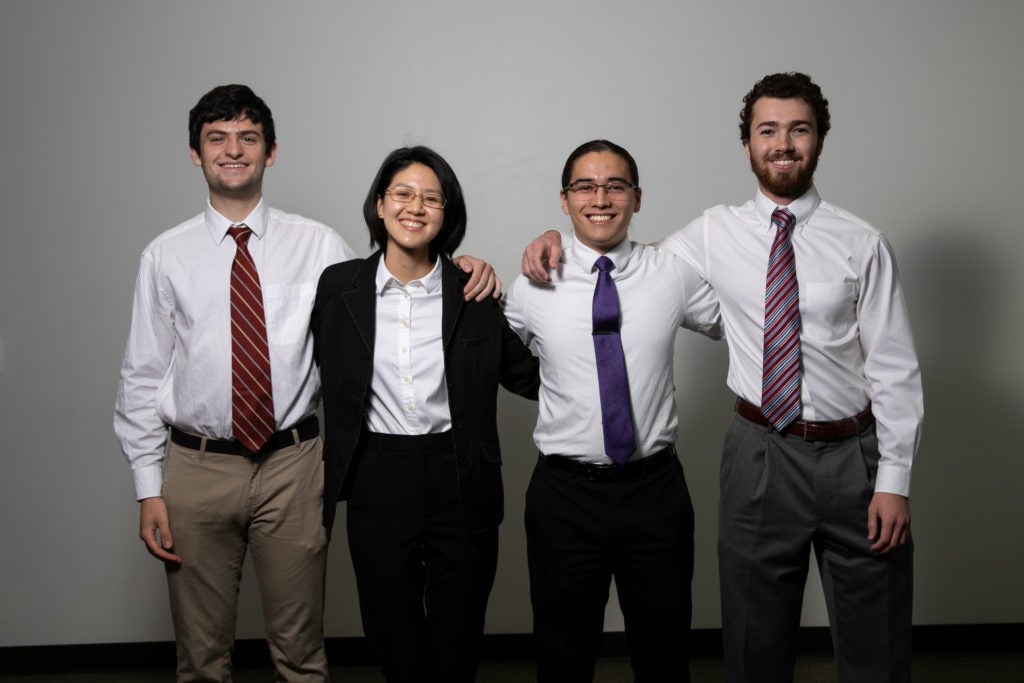
How Autonomous Vehicles Might Aid Vulnerable Populations: A Case Study in Tokyo 2020 Olympic and Paralympic Games
East Asia Region
Research how the elderly and disabled react to autonomous vehicles during the 2020 Tokyo Olympics
Student team members: Jean Kureyama, Eliezer Pearl, John Sherar, Peter Sumners
Faculty team members: Junfeng Jiao, Junko Hatanaka
Graduate student team member: Yefu Chen
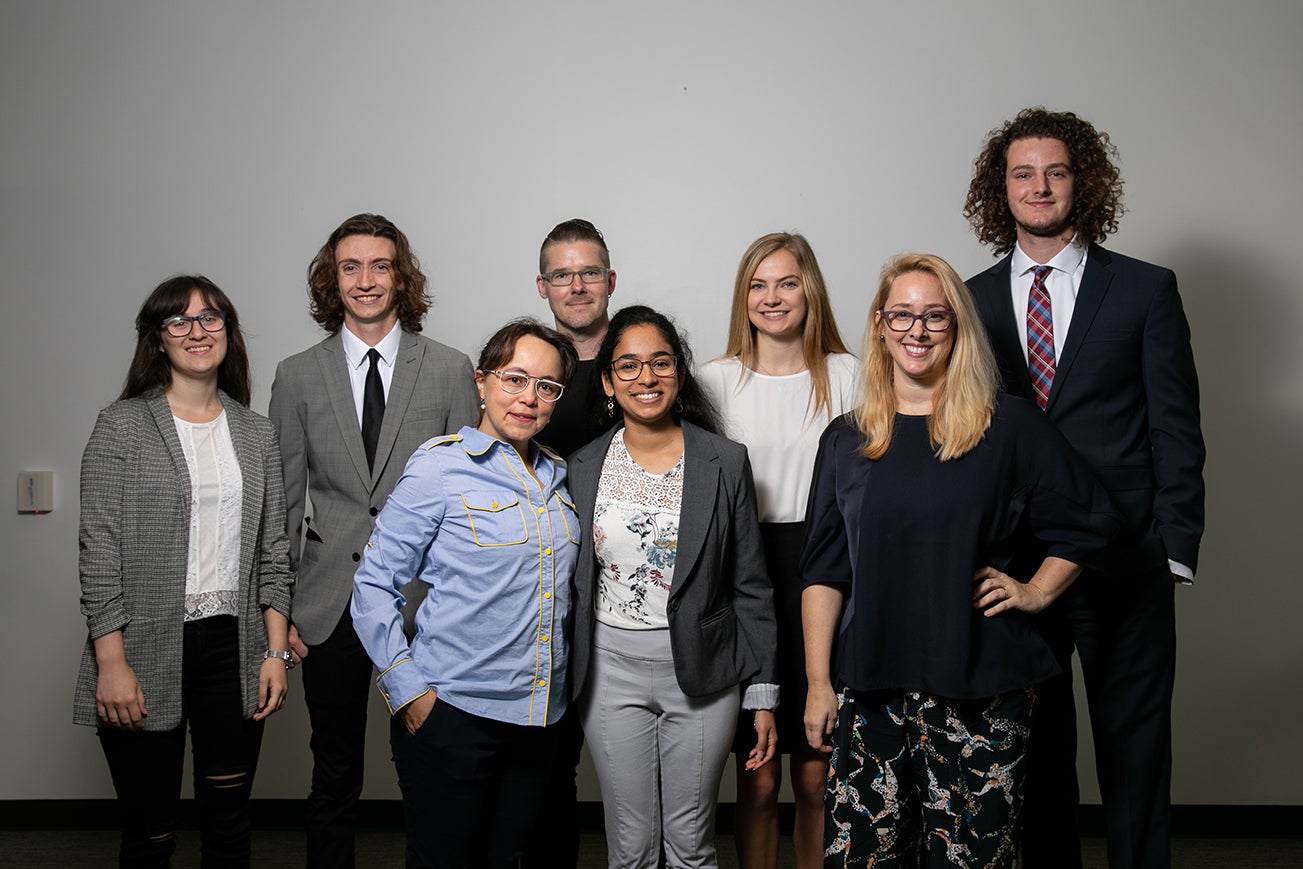
Sustainable Embellishments for the Apparel and Textile Industry in Copenhagen
Europe, Russia and the Caucasus Region
Create embellishments for garments/accessories that biodegrade or form circular product cycle, preventing them from ending up in landfills or the environment
Student team members: Lilli Bennett, Cole Collins, Dominic Schillace, Shroothi Ramesh
Faculty team members: Jessica Ciarla, Luisa Fandino, Nathaniel Lynd
Graduate student team member: Jennifer Imbrogno
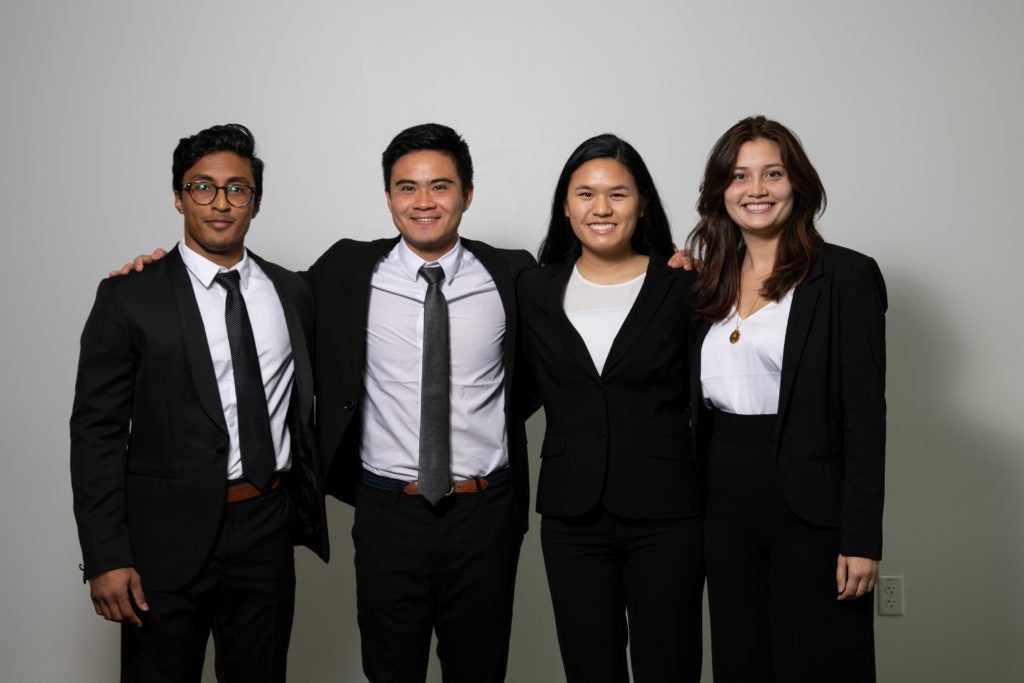
A Bittersweet Burden: Understanding Causes and Consequences of Diabetes Complications Using Design-Thinking in Puebla, Mexico
Central America, Mexico, and the Caribbean Region
Study patients in Puebla, Mexico, hospitalized with preventable, acute complications of diabetes in order to identify both medical and sociocultural systems gaps in diabetes care and to generate insights on potential points of intervention
Student team members: Harrison Mark, Kanishka Mitra, Kathryn Quan, Joyce Tiong
Faculty team members: Jacqueline Angel, Dr. Meghana Gadgil, Meeta Kothare
Graduate student team member: Christian Vazquez
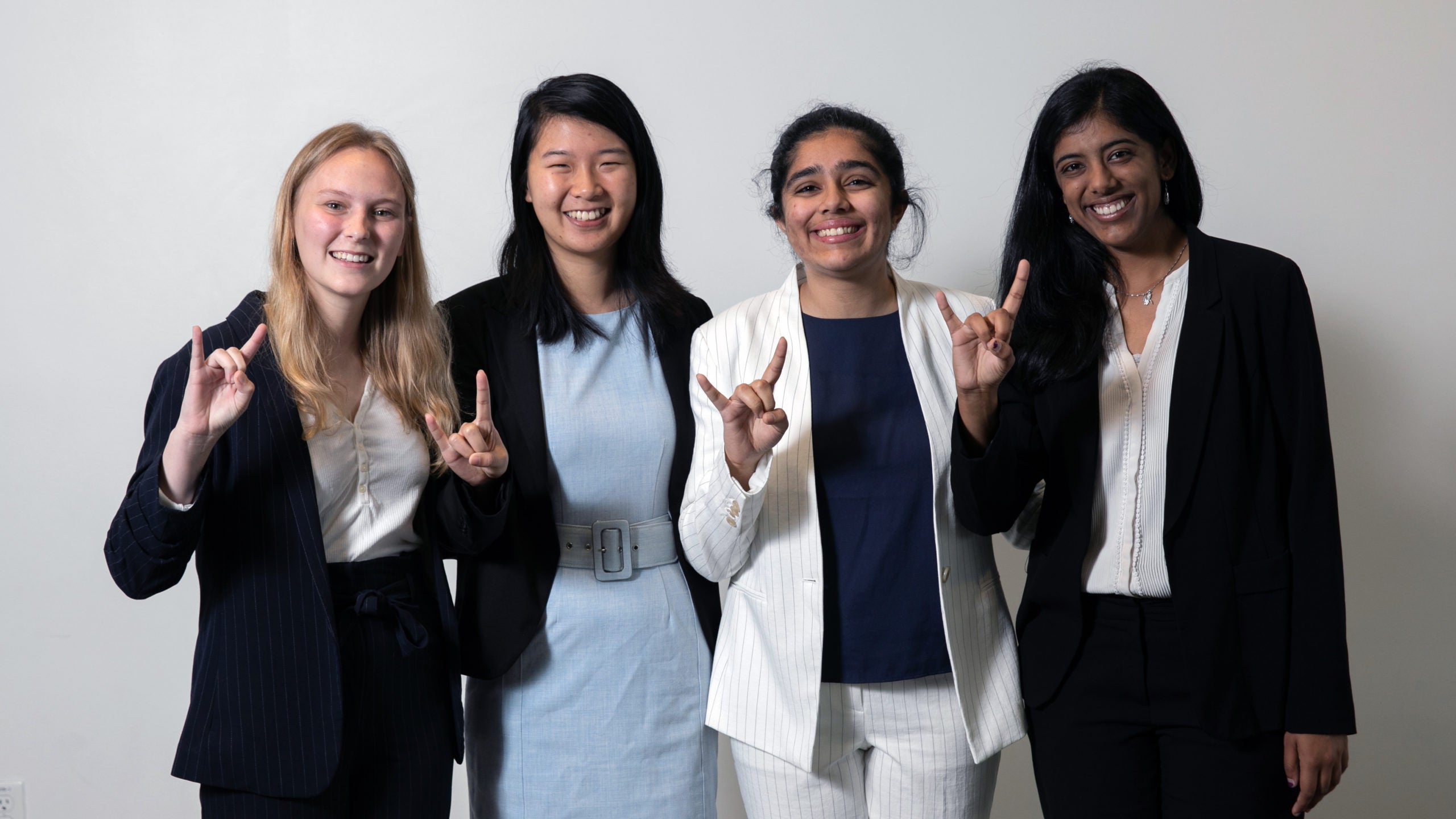
Developing Equality: Creating a Mobile Application to Address Health Inequalities for LGBTQ+ South Indians
South/Southeast Asia and Oceania Region
Create mobile and web-based technology to deliver an adapted LGBTQ+ health and sexual health curriculum for regional health care providers in Chennai, India
Student team members Shelby Hobohm, Nima Rahman, Shilpa Rajagopal, Rosaleen Xiong
Faculty team members: Sharmila Rudrappa, Patricia Hamilton-Solum, Paul Toprac
Graduate student team member: Aniruddhan Vasudevan
2018-2019
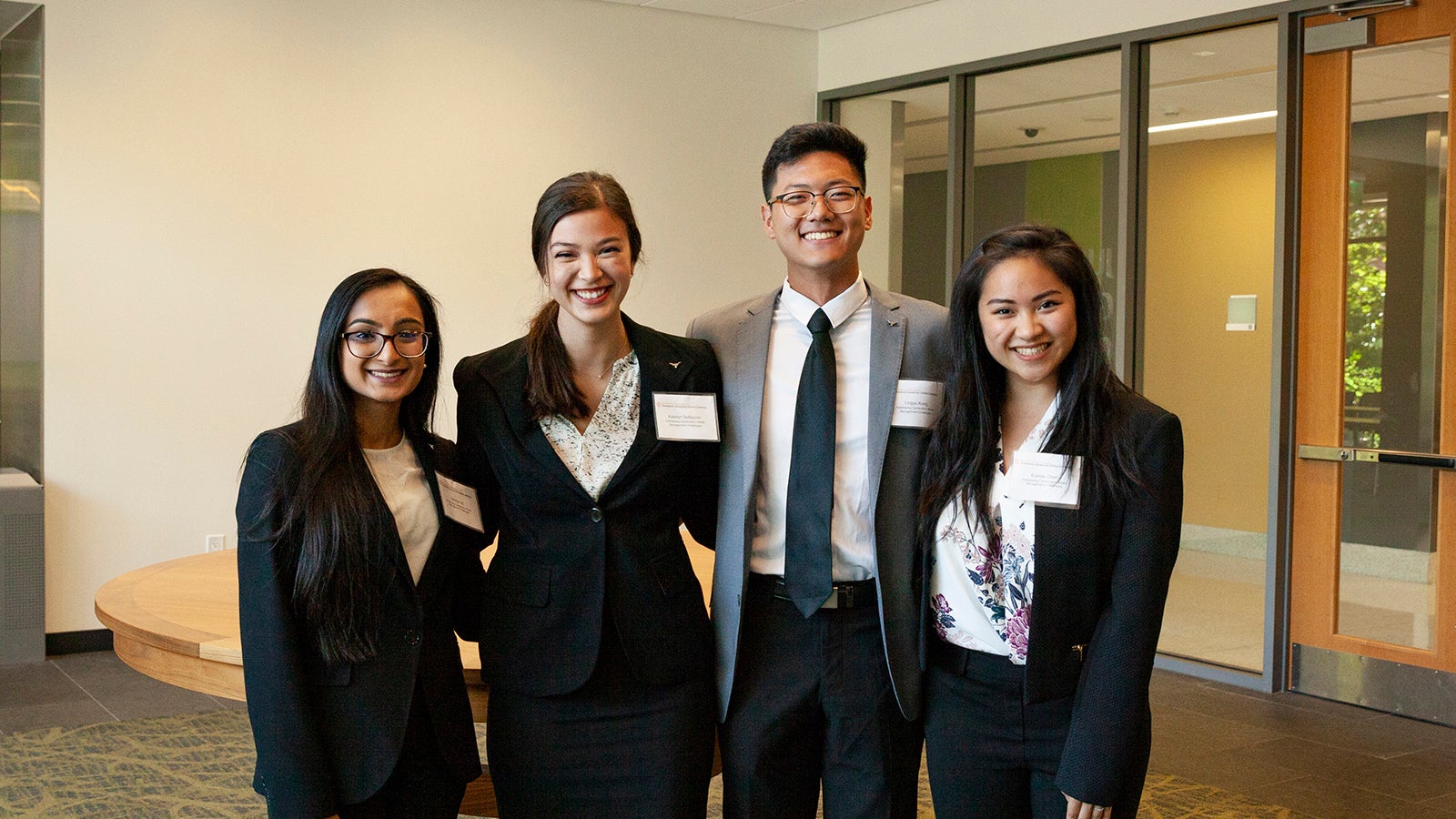
Addressing Cambodia’s Waste Management Challenges: A Proposal for Co-Generating Entrepreneurial Solutions with Local Communities
Southeast Asia
Test a pilot educational model in communities and encourage shifts in cultural views on waste while teaching the tools needed to generate solutions. Student team members: Simran Ali, Eunise Chen, Katelyn DeBacker, and Lingyu Kong. Faculty team members: Dr. Jenny Knowles Morrison, Dr. Lucy Atkinson, and Dr. Kasey Mariko Faust.
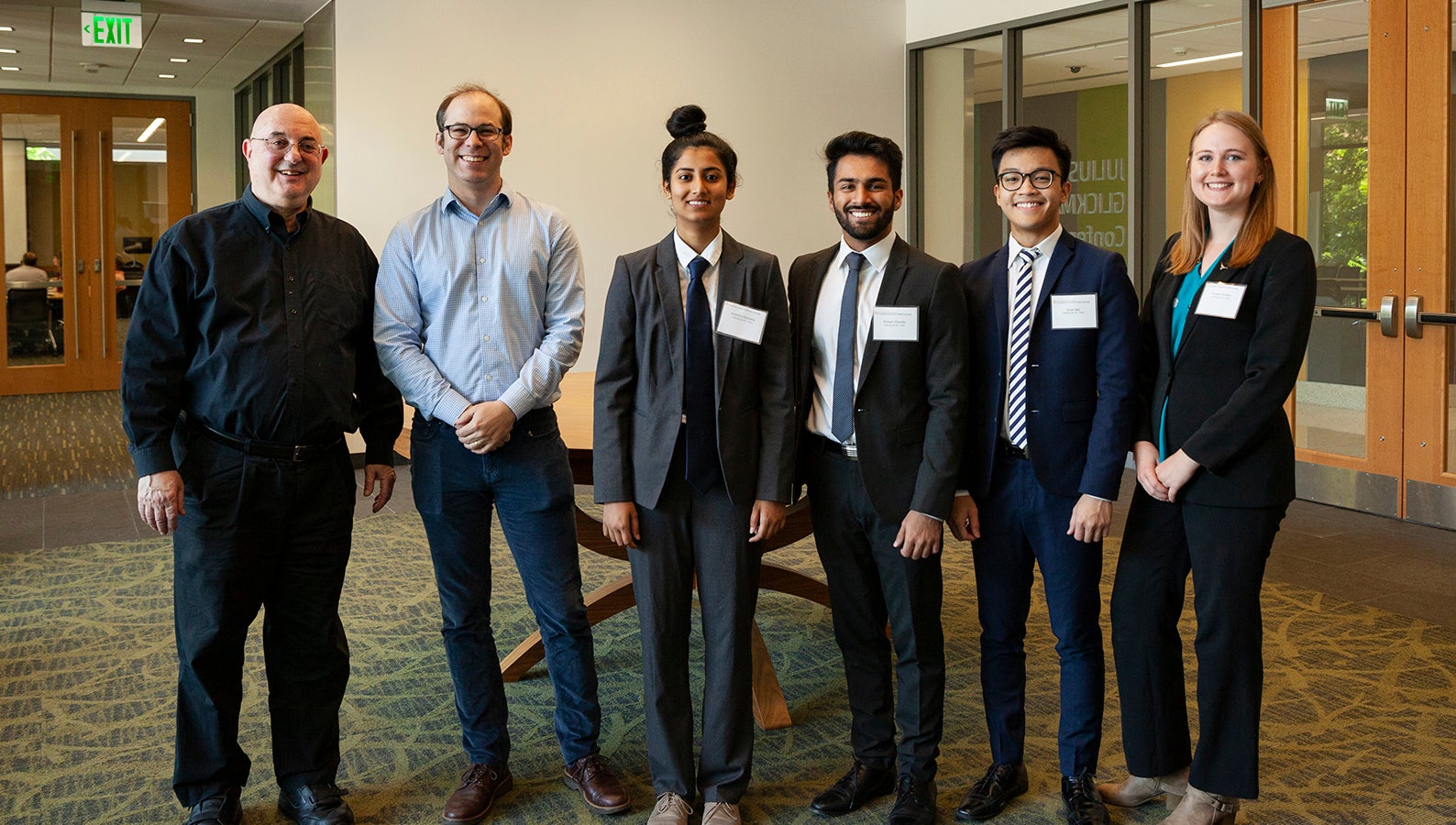
Clearing the Air: Using Scalable, Low-Cost Sensors to Address India’s Air Quality Knowledge Gaps
South Asia
Distribute low-cost sensors to measure air pollution in India. Student team members: Shayan Charolia, Heather Howton, Brian Mai, and Advaitha Reddy. Faculty team members: Dr. Joshua Apte and Dr. David Eaton.
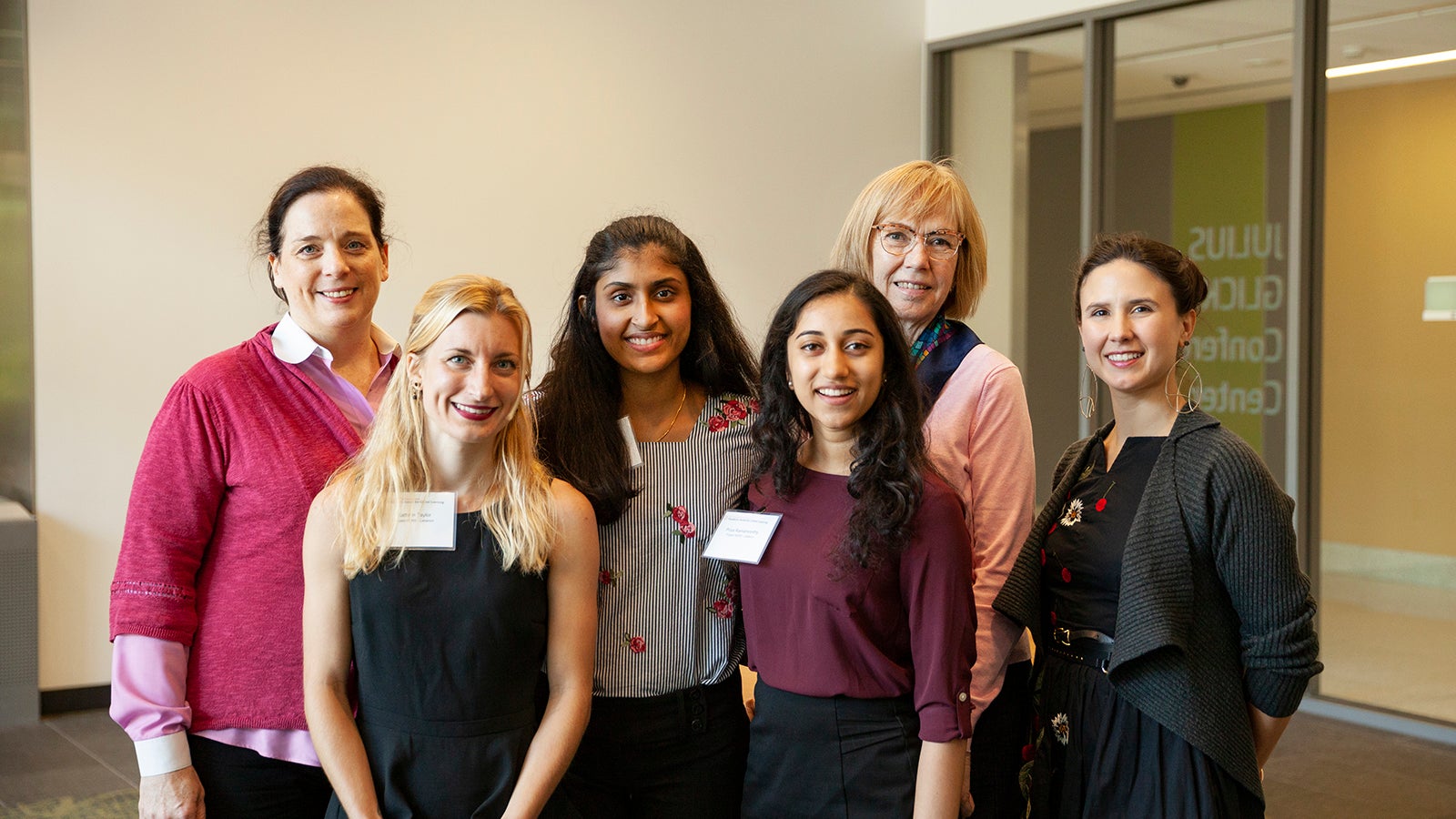
Women’s Hygiene, Empowerment and Research for Social Impact (HERS)
Middle East and Central Asia
Analyze and address empowerment through the creation and study of appropriate, sustainable menstrual hygiene products for women in refugee camps in Lebanon. Student team members: Ishani Chakravarty, Edith Muleiro, Priya Ramamoorthy, and Kathryn Taylor. Faculty team members: Dr. Janet Ellzey, Dr. Noël Busch-Armendariz, and Dr. Katherine Polston.
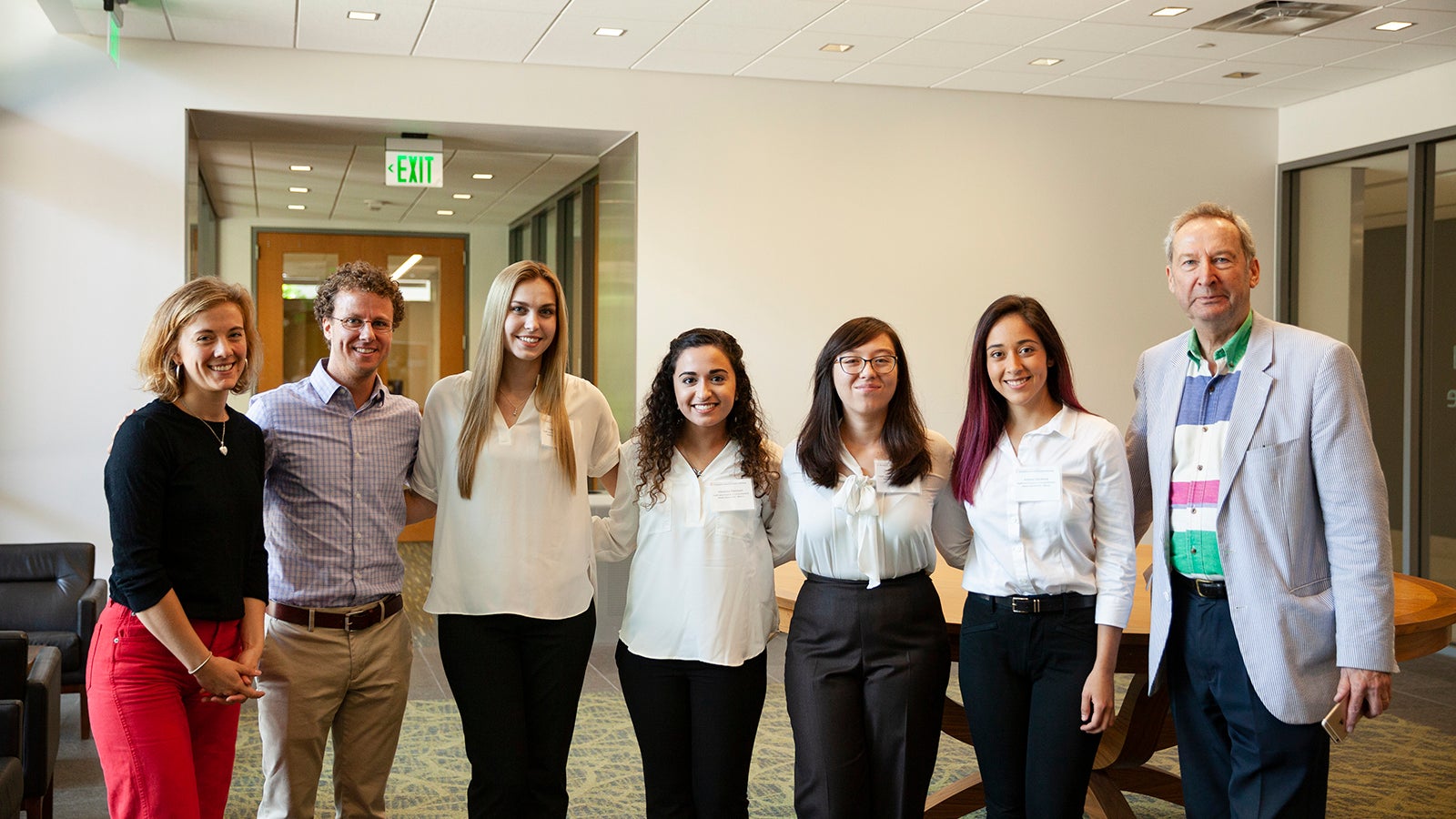
Health and Housing: A Comprehensive Needs Assessment of Low-Income Communities in Puebla, Mexico
Latin America
Comprehensive assessment of health needs, determinants, and resources in underserved regions of Puebla, Mexico, focusing on aspects of the built environment. Student team members: Christina Ciaburri, Veronica Remmert, Claire Stephenson, and Andrea Sandoval Flores. Faculty team members: Dr. Ricardo Ainslie, Dr. Tim Mercer, and Dr. Peter Ward.
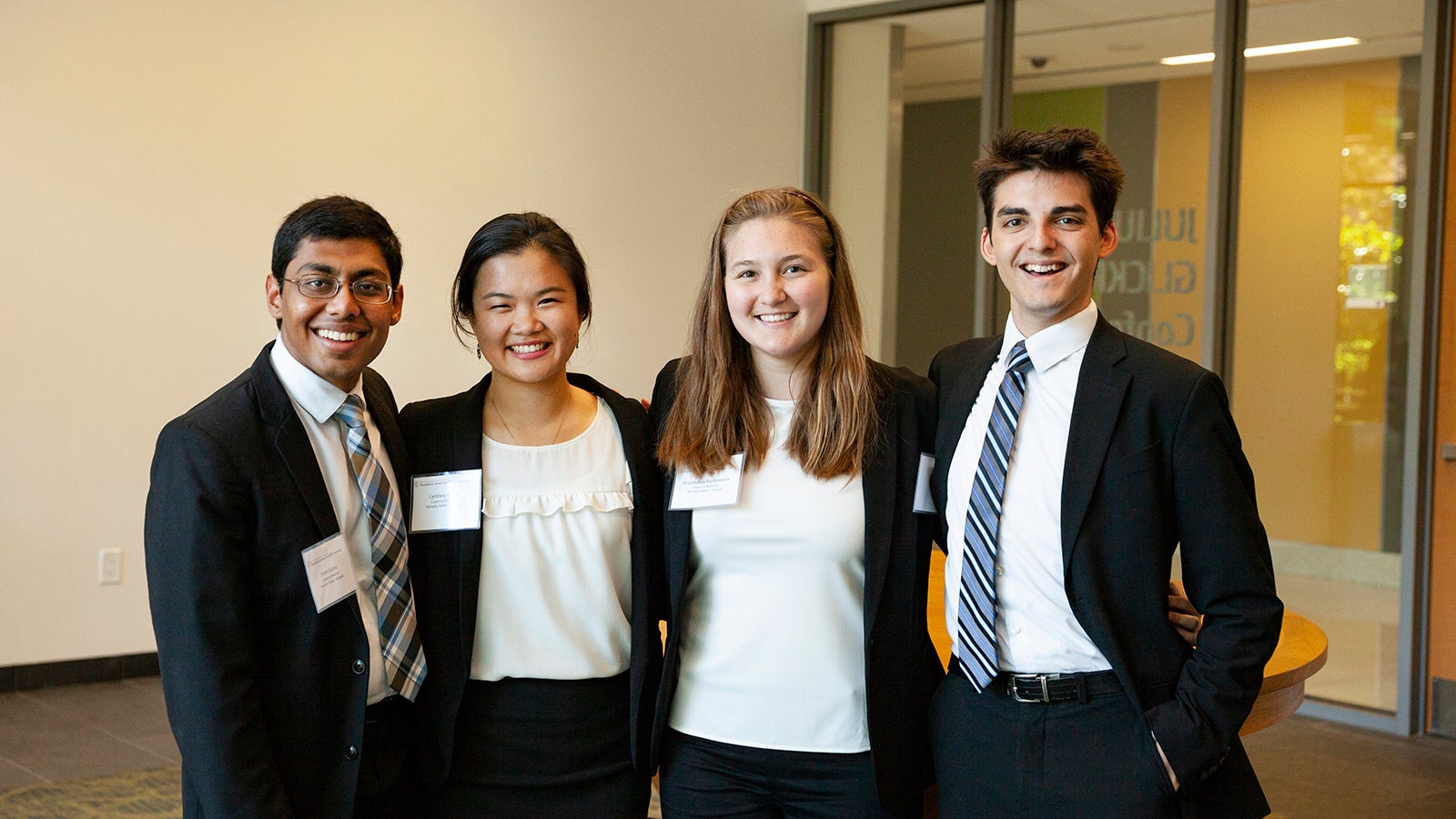
Lowering Maternal Mortality Rates: What Texas Can Learn from the Republic of Georgia
Europe, Russia, and the Caucasus
Helping Texas reduce its maternal mortality rate by examining successful methods in Georgia. Student team members: Anastasiya Byelousova, Parth Gupta, Michael Sanchez, and Lyndsey Wang. Faculty team members: Dr. Amy Liu and Dr. Sharmila Rudrappa.
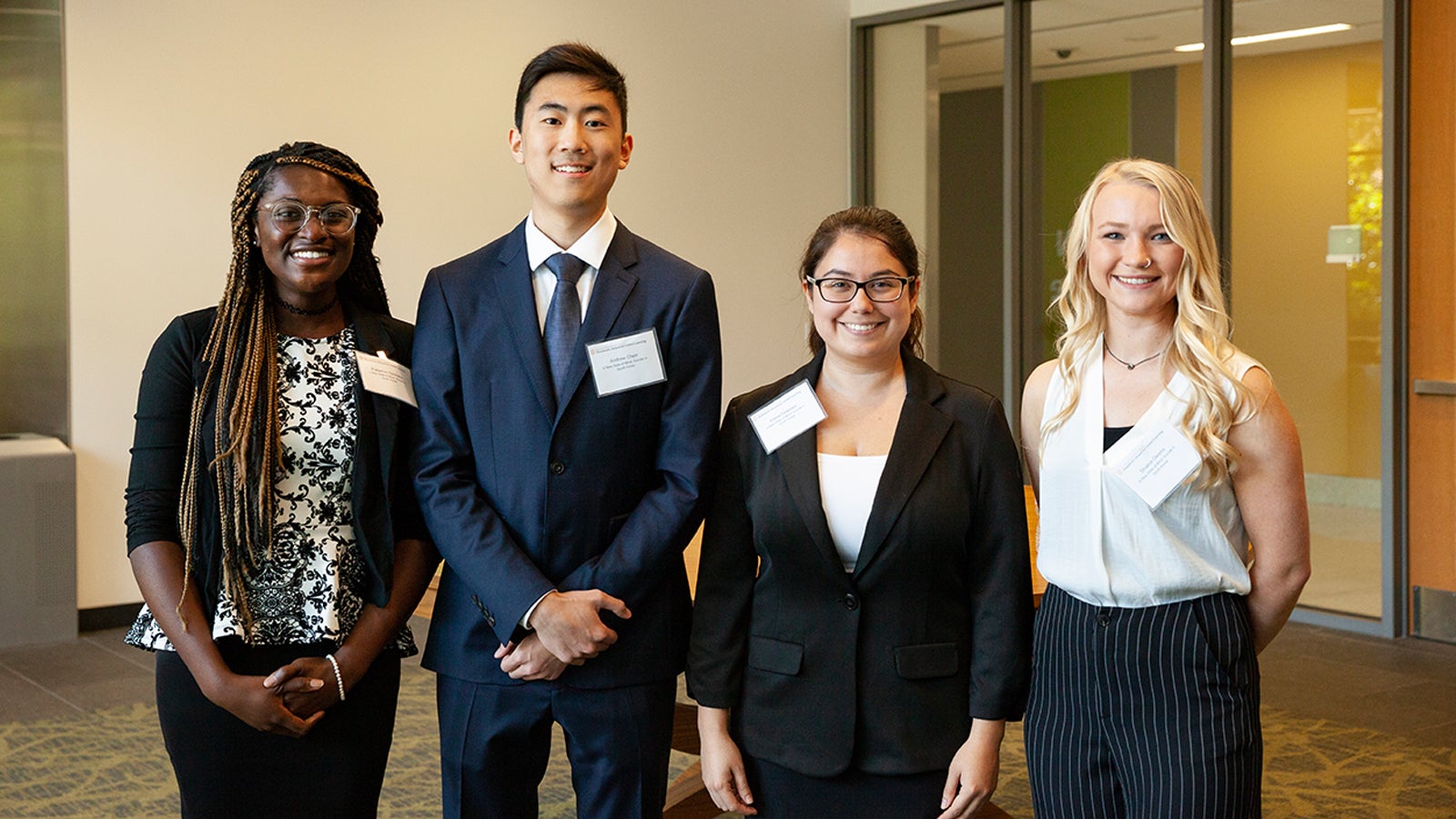
A New State of Mind: Mental Health in South Korea
East Asia
Explore whether culturally grounded intervention programs, through the use of a mobile app and in-person workshops, can have an impact on people’s opinions on mental illness and suicide in South Korea. Student team members: Andrew Chen, Patience Ojionuka, Elena Ordonez, and Shaina Owens. Faculty team members: Prof. Jiwon Park, Dr. Carma Gorman, and Prof. Michael Baker.
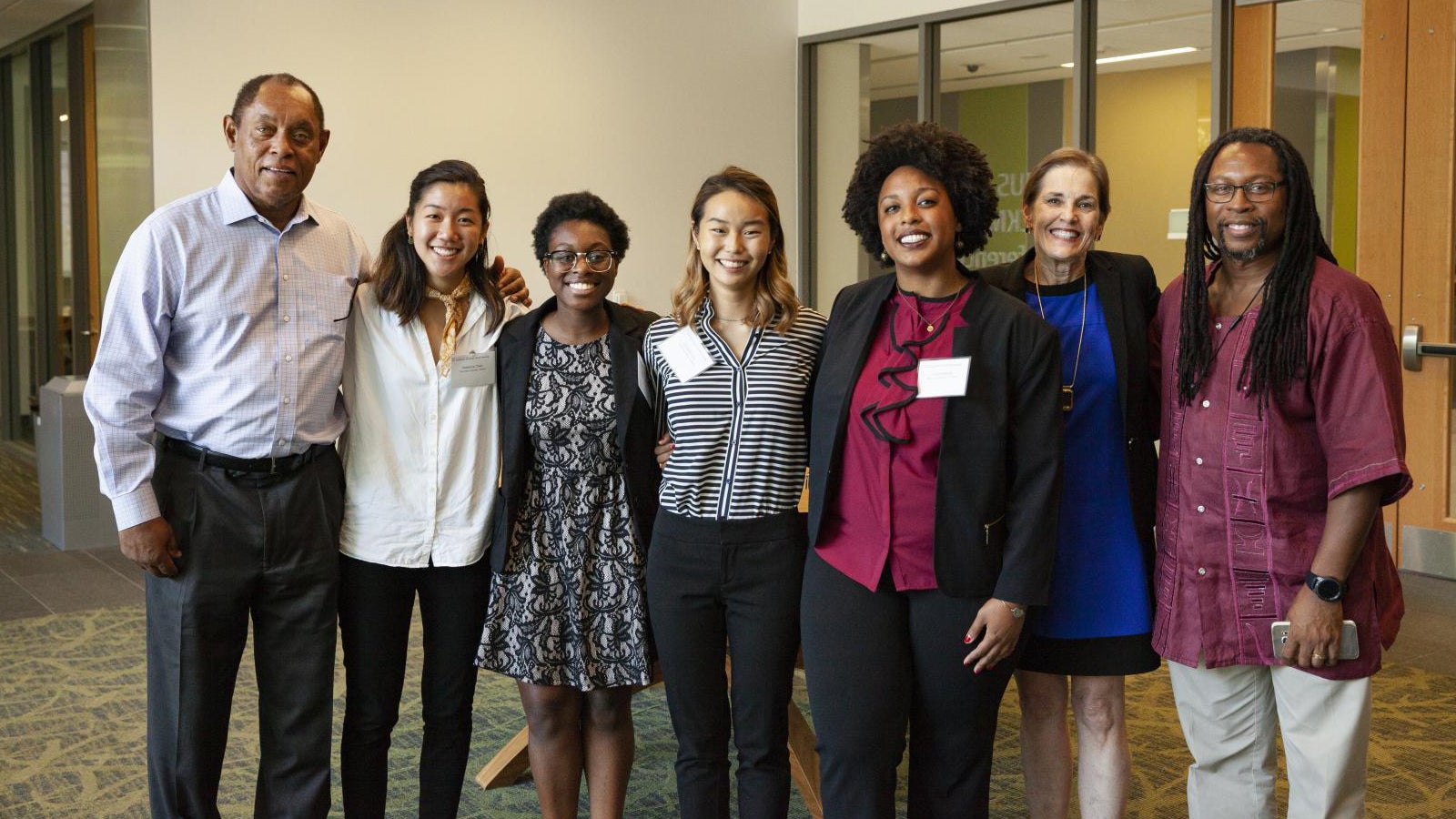
The Color Complex: Unraveling the Stigma of Colorism in Global Communities
Africa
Explore the influences of colorism in Ghana through the lenses of media and businesses; identity and sense of self-worth; the cyclical nature of skin bleaching in families; and social mobility. Student team members: Timia Bethea, Rebecca Chen, Christina Cho and Vida Nwadiei. Faculty members: Prof. John Doggett, Dr. Kevin Cokley and Dr. Minette Drumwright.